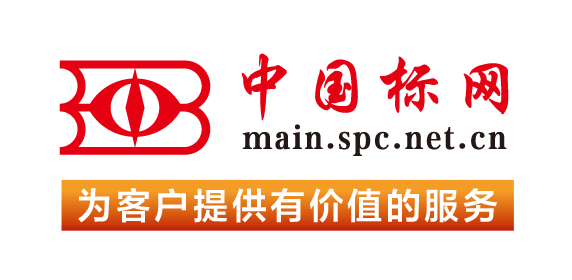【国外标准】 Standard Test Method for Pavement Thickness by Magnetic Pulse Induction
本网站 发布时间:
2024-02-28
开通会员免费在线看70000余条国内标准,赠送文本下载次数,单本最低仅合13.3元!还可享标准出版进度查询、定制跟踪推送、标准查新等超多特权!
查看详情>>
适用范围:
5.1 This test method covers the indirect measurement of the pavement thickness to provide a rapid, nondestructive result. The method is used to determine the compliance of asphalt or concrete pavement construction with the thickness specifications. The nondestructive thickness results for concrete pavements have shown excellent correlation (R2 values of 99.7 %) with direct measurement of pavement thickness using AASHTO T 148 and Test Method C174/C174M.5.2 Measurement results from MPI devices are unaffected by concrete or asphalt material composition, including the use of slag or other metallic aggregates, material temperature, or moisture content, thus allowing installers a quality control process that provides results that can be used in controlling the paving operation. In addition, quantitative results are produced to document as-built thicknesses.5.3 Infrastructure owners use the same device to perform quality assurance activities and to accept installed facilities. Its accuracy and repeatability allow the reduction or elimination of coring requirements related to pavement thickness determination.1.1 This test method covers the equipment, field procedures, and interpretation of the results for the pavement thickness measurements produced by a magnetic pulse induction (MPI) device. Magnetic pulse induction devices induce a weak-pulsed magnetic field that causes the induction of eddy currents in metal objects disturbing the field. In order to measure pavement thickness with an MPI device, a pre-placed metal reflector is required. When the metal reflector enters into the field, an electrical signal is produced and processed through algorithms to detect and produce quantitative values for pavement thickness.1.2 This test method also provides the details including configuration and metallurgy required to purchase and install reflectors to produce accurate and repeatable results.1.3 This method is intended for use with plain-jointed concrete pavements, asphalt pavements, base courses with cement binders, and unbound aggregate layers. It is not applicable for continuously reinforced, mesh-reinforced, or fiber-reinforced pavement where the metal reinforcement would interfere with the magnetic field.1.4 MPI equipment includes a device that induces the magnetic field and collects the electrical signal. The signal information is collected and processed into pavement thicknesses through algorithms programmed into the device firmware.1.5 MPI field procedures describe the steps and processes required to collect reliable, repeatable, and accurate results from the MPI device. Critical to the accuracy are the metallurgy and configuration of the metal reflectors pre-placed prior to installation of the asphalt or concrete pavement. Also, the absence of any metallic object near the reflector is required to avoid influencing the test result.1.6 MPI results require little interpretation when the correct reflector calibration is selected and used during the field test.1.7 Units—The values stated in either SI units or inch-pound units are to be regarded separately as standard. The values stated in each system may not be exact equivalents; therefore, each system shall be used independently of the other. Combining values from the two systems may result in nonconformance with the standard.1.8 This standard does not purport to address all of the safety concerns, if any, associated with its use. It is the responsibility of the user of this standard to establish appropriate safety, health, and environmental practices and determine the applicability of regulatory limitations prior to use.1.9 This international standard was developed in accordance with internationally recognized principles on standardization established in the Decision on Principles for the Development of International Standards, Guides and Recommendations issued by the World Trade Organization Technical Barriers to Trade (TBT) Committee.
标准号:
ASTM E3209/E3209M-20
标准名称:
Standard Test Method for Pavement Thickness by Magnetic Pulse Induction
英文名称:
Standard Test Method for Pavement Thickness by Magnetic Pulse Induction标准状态:
Active-
发布日期:
-
实施日期:
出版语种:
- 推荐标准
- ASTM F3016/F3016M-19 Standard Test Method for Surrogate Testing of Vehicle Impact Protective Devices at Low Speeds
- ASTM F3019/F3019M-19 Standard Specification for Chromium Free Zinc-Flake Composite, with or without Integral Lubricant, Corrosion Protective Coatings for Fasteners
- ASTM F302-09(2021) Standard Practice for Field Sampling of Aerospace Fluids in Containers
- ASTM F3021-17 Standard Specification for Universal Design of Fitness Equipment for Inclusive Use by Persons with Functional Limitations and Impairments
- ASTM F3022-16e1 Standard Test Method for Evaluating the Universal Design of Fitness Equipment for Inclusive Use by Persons with Functional Limitations and Impairments
- ASTM F3023-18 Standard Test Methods for Evaluating Design and Performance Characteristics of Stationary Upright and Recumbent Exercise Bicycles and Upper and Total Body Ergometers
- ASTM F3026-14(2019) Standard Guide for Helicopter Inland Search and Rescue (SAR) Crew Chief
- ASTM F3027-18 Standard Guide for Training of Personnel Operating in Mountainous Terrain (Mountain Endorsement)
- ASTM F3033-16(2021) Standard Practice for Installation of a Single-Sized, Cured-In-Place Liner Utilizing an Inflatable Bladder for Resurfacing Manhole Walls of Various Shapes and Sizes
- ASTM F3034-21 Standard Specification for Billets made by Winding Molten Extruded Stress-Rated High Density Polyethylene (HDPE)
- ASTM F3035-22 Standard Practice for Production Acceptance in the Manufacture of a Fixed Wing Light Sport Aircraft
- ASTM F3036-21 Standard Guide for Testing Absorbable Stents
- ASTM F3038-21 Standard Test Method for Timed Evaluation of Forced-Entry-Resistant Systems
- ASTM F3043-15 Standard Specification for “Twist Off” Type Tension Control Structural Bolt/Nut/Washer Assemblies, Alloy Steel, Heat Treated, 200 ksi Minimum Tensile Strength
- ASTM F3045-21 Standard Test Method for Evaluation of the Type and Viscoelastic Stability of Water-in-oil Mixtures Formed from Crude Oil and Petroleum Products Mixed with Water
 购物车
购物车 400-168-0010
400-168-0010













